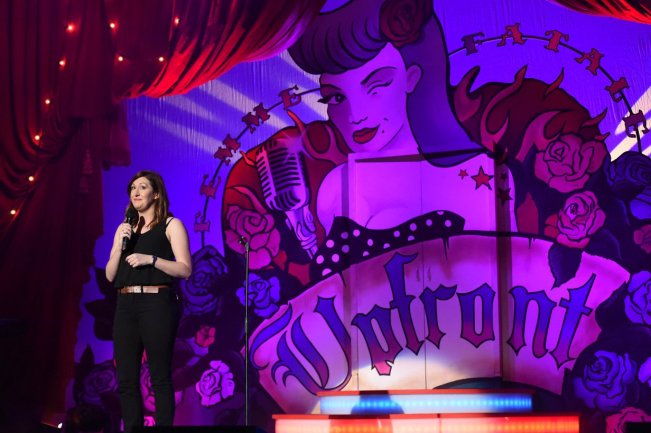
Photo Credit: Jim Lee Photo
The Melbourne International Comedy Festival has been touring Asia for more than a decade now, making appearances primarily in Hong Kong and Singapore, but also more recently in Malaysia and India.
Over that time, not only has the makeup of the touring schedule developed but so too has the marketing mix. Here, the festival’s executive director, Damien Hodgkinson, shares his tips on taking your event international.
Work with local experts
While there might not be a huge transition going state to state in Australia, when you move into a new continent there’s lots to learn, perhaps too much for an annual event.
Hodgkinson is open about the fact that the festival works with local experts when they tour the festival in Asia, as there’s simply too much to learn and keep on top of during their short stays there.
“We work very closely with local marketing and presenting partners when we’re presenting shows overseas,” he said.
“We don’t have the local on-the-ground market knowledge. Our events are for a week or so each year, so a lot can change in a year, so we work very closely with our marketing partners, our venue partners, and our co-presenters in those markets.”
Shape your event with locals
When the Melbourne International Comedy Festival first started touring Asia, it was a way to tour Australian and international product to a larger market.
Over time, this changed and the festival organisers worked with local venues to include the best talent from the area to give the events more of a pull that strengthens the brand both overseas and at home.
“Part of our goals is to deliver a festival that puts Melbourne on the world stage,” said Hodgkinson.
“Over time, we’d formed many strong connections with the local comedy industry, and over the past five or so years it’s very much a two-way cultural exchange.”
“The Indian Comedy Showcase over the past couple of years has been huge in the way it engages really strongly the traditional Melbourne International Comedy Festival audience but also building new audiences with Melbourne’s Indian community.
“There have also been a number of solo shows of Indian artists and Malaysian artists. We had a show in Hinglish this year, we’ve also had shows in Cantonese and Mandarin.”
Work with specific experts
While general marketing companies will be a huge help when you first move into a new area, there will come a time when you need to get smarter with your marketing.
Just like in Australia when you would work with specialists for offline and online marketing, and perhaps even break that down further – for example for social media, SEO, SEM and outreach – the same goes for work overseas.
Hodgkinson values this approach when the festival is overseas, especially with different tools, sites and apps in use in different countries.
“We also engage specifics, so experts around WeChat or whatever tools that the audiences are using,” he said.
“Word of mouth is always going to be, always has been, the strongest tool for live performance in comedy, so sharing video, building momentum, engaging the right preview audiences and building on our network here or on the air. A partnership approach is essential certainly for live comedy in our situation.”
The big point to take from the comedy festival’s foray into Asia is to tap into the local talent – whether that’s in the form of industry peers, marketing agencies or marketing specialists.
To hear more from Damien Hodgkinson and his work at the Melbourne International Comedy Festival, book your ticket to The Business of Events, 7- 8 February 2019 at Sheraton Grand Sydney Hyde Park.
